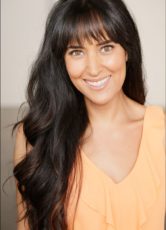
It may be hard for you to admit this because you are a tremendously diverse, uncommonly nuanced, unpredictable, multi-talented actor who refuses to be labeled. But labeled you are. Every time you’re called in for a commercial audition, you are labeled: surfer, mom, edgy, real, quirky, stud, girl next door, nerd, slacker, convict, model, glutton–and the list goes on. Even alternative actors have a label: alternative. Alternative to what, I’m not sure. But whether you like it or not, you are someone’s type—a sort of person who can be identified immediately by anyone watching commercials. It’s important to understand what type you are, or what types you can convincingly pull off, for two reasons: so you can be cast as your type, and so you can be cast against type.
When you go with the flow and boldly own your type, most importantly, you can maximize your chances for a particular role. If they’re looking for the epitome of an all-American in his or her twenties, and you foot the bill, you don’t want to be out of town during this audition. Some argue typecasting can be restrictive. Michelle Williams who plays Marilyn Monroe in My Week with Marilyn explained her insights into her character as a sex symbol. “[Marilyn] spent years working on that part, creating that part… I think publicly, it was difficult for her to play different roles. People really didn’t want to see her differently. Studios certainly didn’t want anyone to see her differently ….”
While it’s true that sometimes even famous actors can feel shackled by type, a long list of actors from calm-mannered, wise narrator Morgan Freeman to hilarious bromantic Seth Rogen would certainly agree that typecasting helped them land a bounty of roles.
It’s also important to know the image you project in case you want to play against type. When Christopher Walken took to dancing joyously in Fatboy Slim’s Weapon of Choice video, we took notice. And Bill Murray caught us by surprise in his more serious, dramatic role in Lost in Translation.
But playing against type is easier to pull off in films–and much harder to pull off in commercials. With a 15 to 60-second time constraint, commercials don’t exactly allow for character development. So, emphasize what comes naturally. The trick is to bring your own personality, your own life force, and your own joie de vive to the role! They’re looking to be engaged with your own brand of charisma. So go in there and blow them away, even though you know you’re more than just that label!
Want to get your acting career started? Sign up or login to Casting Frontier today and start auditioning today!
Related articles:
5 COMMERCIAL ACTING TIPS
WRAP UP YOUR COMMERCIAL AUDITION WITH A BUTTON
COMMERCIAL AUDITION TIPS: WHAT CASTING DIRECTORS WANT YOU TO KNOW




